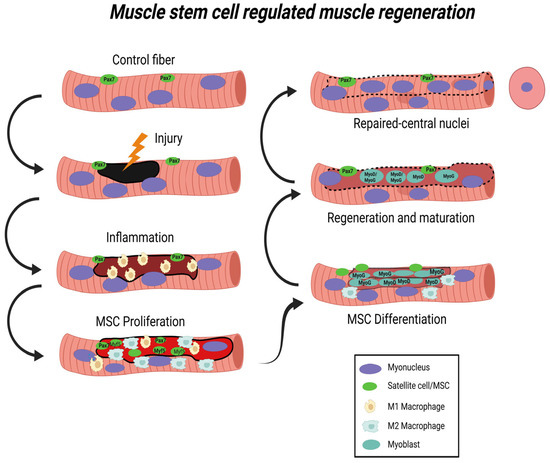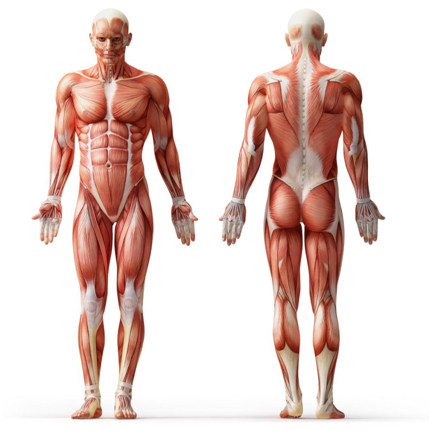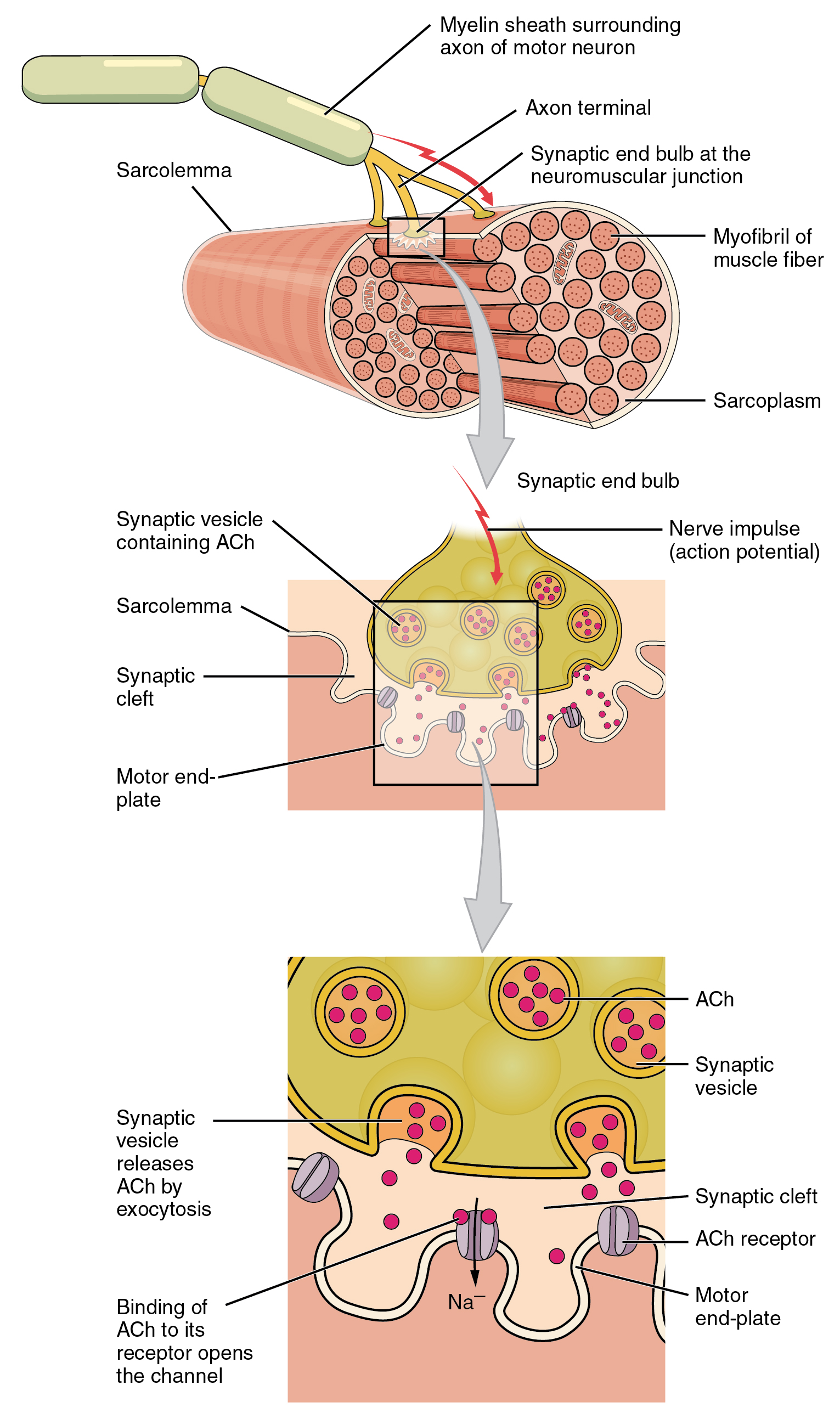Welcome to the world of muscle recovery! In this article, we will explore the fascinating process that happens inside your muscles after intense exercise or injury. Understanding how your muscles recover is essential for optimizing your training and achieving your fitness goals. Join us as we delve into the different phases of muscle recovery and discover the vital role they play in rebuilding and strengthening your muscles. So, let’s dive in and uncover the secrets of muscle recovery!
Overview of muscle recovery and its importance
Muscle recovery is a crucial process for athletes and fitness enthusiasts alike. It allows the body to repair and rebuild muscles, leading to strength and performance gains. Proper muscle recovery enhances the effectiveness of your training while reducing the risk of injuries. By understanding the different phases of muscle recovery and implementing strategies to optimize it, you can maximize your results and achieve your fitness goals faster. Remember, taking care of your muscles is the key to long-term success!
The process of muscle recovery and repair

During the process of muscle recovery and repair, several key steps take place within your muscles. First, there is the inflammation phase, where damaged tissue is cleared away. Next, the regeneration phase occurs, where new muscle fibers and blood vessels are formed. Finally, in the remodeling phase, the muscles strengthen and grow through the synthesis of new proteins. These stages work together to promote muscle recovery and enhance your overall fitness gains.
Inflammation Phase
During the inflammation phase of muscle recovery, damaged tissue is cleared away. This process is triggered by the release of inflammatory molecules and immune cells to the injured area. Inflammation helps to initiate the healing process by removing debris and promoting the influx of nutrients and growth factors to the damaged muscle. Increased blood flow to the area helps deliver oxygen and nutrients to support repair.
Inflammation and its role in muscle recovery
During the inflammation phase of muscle recovery, your body releases inflammatory molecules and immune cells to the injured area. Inflammation plays a crucial role in initiating the healing process by clearing away damaged tissue and promoting the influx of nutrients and growth factors to the damaged muscle. This increased blood flow helps deliver oxygen and nutrients, supporting the repair and recovery of your muscles.
Increased blood flow and nutrient delivery to muscles
During the inflammation phase of muscle recovery, increased blood flow to the injured area helps deliver oxygen and nutrients, supporting the repair process. This enhanced blood flow is important for providing the necessary building blocks for muscle repair and regeneration. The influx of nutrients and growth factors promotes healing and facilitates the regeneration of damaged muscle fibers.
Regeneration Phase
During the regeneration phase of muscle recovery, damaged muscle fibers begin to repair and regenerate. New cells called myoblasts are activated and fuse together to form new muscle fibers. This process is essential for restoring the strength and function of the injured muscle. Additionally, new blood vessels are formed to provide oxygen and nutrients to the regenerating muscle tissue. The regeneration phase is crucial in restoring the structure and function of the injured muscle.
Muscle fiber regeneration and repair

During the regeneration phase of muscle recovery, damaged muscle fibers begin to repair and regenerate. New cells called myoblasts are activated and fuse together to form new muscle fibers. This process is essential for restoring the strength and function of the injured muscle. Additionally, new blood vessels are formed to provide oxygen and nutrients to the regenerating muscle tissue. The regeneration phase is crucial in restoring the structure and function of the injured muscle (Source: ars.els-cdn.com).
Formation of new blood vessels
During the regeneration phase, your body also forms new blood vessels to support the regenerating muscle tissue. This process, known as angiogenesis, helps to deliver oxygen and essential nutrients to the injured area. The formation of new blood vessels is crucial for the proper healing and functioning of the muscles. It ensures that the regenerating muscle fibers receive the necessary resources for their growth and repair.
Remodeling Phase
During the remodeling phase of muscle recovery, your body works to strengthen and refine the newly regenerated muscle fibers. This phase involves the restructuring of the muscle tissue to improve its functionality and efficiency. The remodeling process also includes the synthesis of new proteins, which contribute to muscle growth and increased strength. By focusing on proper nutrition and exercise during this phase, you can optimize the remodeling process and enhance your overall muscle recovery.
Muscle remodeling and strengthening

During the remodeling phase of muscle recovery, your body works to strengthen and refine the newly regenerated muscle fibers. This phase involves the restructuring of the muscle tissue to improve its functionality and efficiency. The remodeling process also includes the synthesis of new proteins, which contribute to muscle growth and increased strength. By focusing on proper nutrition and exercise during this phase, you can optimize the remodeling process and enhance your overall muscle recovery.
Synthesis of new proteins and muscle growth
During the remodeling phase of muscle recovery, your body synthesizes new proteins to support muscle growth. These proteins help in repairing and building stronger muscle fibers. By providing your body with an adequate amount of protein through your diet, you can optimize this protein synthesis process and promote muscle growth. Additionally, incorporating resistance training exercises into your workouts can further stimulate muscle growth and strengthen your muscles.
Factors Affecting Muscle Recovery
Factors Affecting Muscle Recovery:
Proper nutrition and hydration play a crucial role in muscle recovery. Consuming an adequate amount of protein supports the synthesis of new proteins and muscle growth. In addition, staying hydrated helps to flush out toxins and prevent dehydration, which can hinder the recovery process. Rest and sleep are also essential for muscle recovery, as they allow your muscles to repair and regenerate. Prioritizing these factors will optimize your muscle recovery and promote overall performance.
Effects of nutrition and hydration on muscle recovery
In order to support muscle recovery, it is crucial to provide your body with the right fuel. Adequate nutrition, specifically a balanced diet high in protein, helps facilitate the synthesis of new proteins and muscle growth. Additionally, staying hydrated is essential as it helps to flush out toxins and prevent dehydration, which can hinder the recovery process. Prioritizing these factors will optimize your muscle recovery and promote overall performance.
The importance of rest and sleep in the recovery process
Rest and sleep are crucial components of the muscle recovery process. During rest, your body repairs damaged muscle fibers and replenishes energy stores. Sleep, specifically deep sleep, promotes the release of growth hormones, which aid in muscle repair and growth. Aim for 7-9 hours of quality sleep each night to optimize your muscle recovery and performance.
Conclusion

In conclusion, understanding the physiology of muscle recovery is key to maximizing your performance and achieving your fitness goals. By implementing proper nutrition, hydration, and rest, you can optimize the recovery process and promote muscle repair and growth. Remember to prioritize quality sleep and allow your muscles time to rest and recover between workouts. By incorporating these practices, you’ll be able to enhance your athletic performance and achieve better results in your training.
Tips for optimizing muscle recovery
Here are some tips to help optimize your muscle recovery:
- Prioritize proper nutrition: Consume a balanced diet rich in protein, carbohydrates, and healthy fats to provide your muscles with the fuel they need for repair and growth.
- Stay hydrated: Drink plenty of water to support muscle function and prevent dehydration, which can hinder the recovery process.
- Get enough rest: Allow your muscles time to recover between workouts by incorporating rest days into your training schedule.
- Quality sleep: Aim for 7-9 hours of quality sleep each night to promote muscle repair and growth.
- Stretch and foam roll: Engage in regular stretching and use a foam roller to help alleviate muscle soreness and improve flexibility.
- Incorporate active recovery: Engage in light, low-impact activities such as walking or swimming to promote blood flow and aid in muscle recovery.
- Listen to your body: Pay attention to any signs of overtraining or injury and adjust your workout intensity or seek professional guidance if needed.
By following these tips, you can optimize your muscle recovery and enhance your overall performance.
Understanding the benefits of proper muscle recovery
Proper muscle recovery is crucial for maximizing your workout results and preventing injury. When you give your muscles the time and resources they need to repair and rebuild, you’ll experience benefits such as improved muscle growth, increased strength and endurance, enhanced athletic performance, reduced muscle soreness, and decreased risk of overtraining. By understanding the importance of proper muscle recovery, you can optimize your training and achieve your fitness goals more effectively. Remember to prioritize rest and nutrition to reap the benefits of a well-recovered body.

